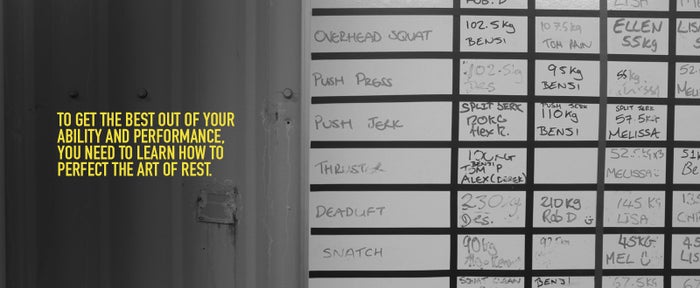
The importance of rest for rugby players:
The importance of rest in any sport is monumental, and this is certainly no different in rugby. Whether it’s pre-season, pre-match or post-match, rest can greatly affect your preparation, recovery and, ultimately, your performance; so who wouldn’t want to get it right? To get the best out of your ability and game, continue reading as we share some invaluable insights on how to perfect the art of rest.
Fatigue and how to combat it
There are various types of fatigue associated with rugby players; physiological, neural, psychological and tissue damage. Each type is brought on by different, demanding aspects of the rugby training and lifestyle, but through balanced sleep, nutrition and relaxation, they can all be successfully combated.
Sleep
To sufficiently recuperate, it is recommended that athletes get between seven and nine hours sleep per night. A good night’s sleep can have a positive impact on a rugby player’s physical and cognitive performance and, just as importantly, essential immune and metabolic processes occur during specific sleep stages.
The quality of sleep rugby players attain is equally momentous. Ever woken up after an eight-hour sleep and just not felt as refreshed and revitalised as you’d expect? This is most likely down to sleep fragmentation – or sleep disturbances – which directly correlate with the quality of your doze. To overcome this sort of barrier, try to develop a consistent sleeping pattern, rehearse relaxation techniques before you go to sleep, block out any worrying or stressful situations prior to drifting off, make your bedroom as dim as possible, and ensure you are in a quiet environment.
There is also evidence to suggest that rugby players can directly benefit from taking power naps throughout the day. Power naps, traditionally, last no longer than one hour, and can improve a rugby player’s alertness, mood and productivity, as well as enhancing the link between learning and remembering.

Nutrition
Consuming the right food groups before training and matches is vital to ensure you get the most out of your body for that period of time. Under-eating, or ingesting the wrong type of foods, can result in early fatigue, reduced alertness and injury or illness, which will all equate to an inhibited performance. Similarly, eating protein-rich meals straight after a session or match is equally important to kick-start the recovery process and help your body mend itself after the physical exertion it’s been put through.
Relaxation
Relaxation methods and techniques, generally, will vary from player-to-player. What works for one individual won’t necessarily work for another, so it’s important you find a system that works for you and stick to it.
Relaxing pre-match is essential to conserve energy, mentally prepare yourself, get yourself in the zone and construct any eventuality that could arise during your time on the pitch. Methods often used for pre-match relaxation include visualisation, breathing and Progressive Muscle Relaxation (PMR) techniques.
Likewise, winding down forms an important part of a rugby player’s every day life during pre-season and in-between training sessions. Putting your body through physical and mental strain, day in and day out, inevitably, requires some sort of balance. Relaxing for a short time every day allows players to recuperate, conserve energy, take a mental break from the game, and avoid mental and physical overload.
Summary
In short, balancing sleep, nutrition and relaxation are pivotal to getting the most out of yourself. The three elements work in a continuous cycle and as soon as one is neglected, you risk exposing yourself to injury, illness, fatigue and psychological strain.

Related Articles








